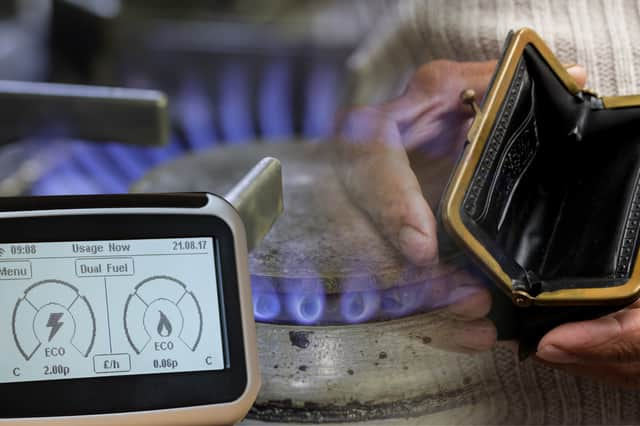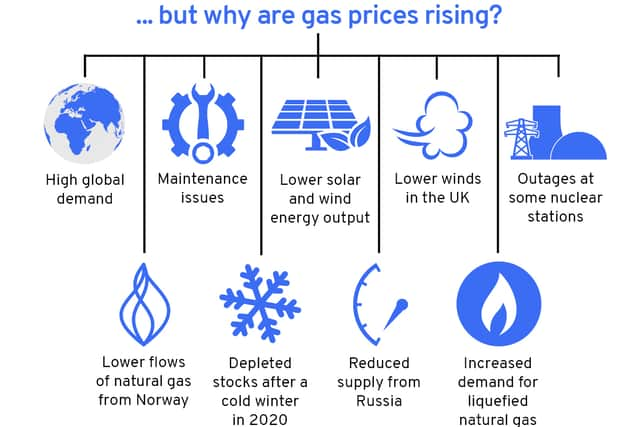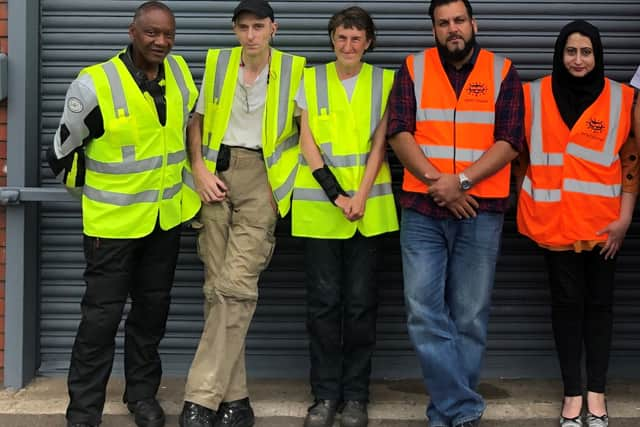Birmingham constituency has highest levels of fuel poverty in England
This article contains affiliate links. We may earn a small commission on items purchased through this article, but that does not affect our editorial judgement.


The founder of a local foodbank has said that some people in the West Midlands are having to choose between ‘eating or heating their homes’ as figures reveal that Birmingham Hodge Hill has the highest levels of fuel poverty out of any constituency in England.
Millions of families living in fuel poverty across the UK are set to be the hardest hit this winter as wholesale gas prices reach record highs, pushing consumer energy bills up.
Advertisement
Hide AdAdvertisement
Hide AdThe West Midlands is the worst affected region in the UK with almost one in four families impacted.
The Joseph Rowntree Foundation said the impending cut to the £20 Universal Credit uplift and surging energy prices could plunge people into poverty - with our region facing the most “severe impact” along with Yorkshire and the Humber.
How is fuel poverty measured?
More than four million families across the UK are classed as living in fuel poverty by their respective devolved governments, analysis by our sister title NationalWorld reveals.
Definitions of fuel poverty in the UK vary from country to country.
Advertisement
Hide AdAdvertisement
Hide AdIn England, households need to be in a home with an inefficient energy rating, as well as being left below the poverty line after heating costs.


The latest figures, from Department of Business, Energy and Industrial Strategy for England , show an estimated 3.2 million families were living in fuel poverty in 2019 – around 13% of all households, or more than one in eight.
The West Midlands is the worst affected region, where there are 429,730 households in fuel poverty (18%).
In Birmingham Hodge Hill, the worst affected constituency in England, more than a quarter of households (27%) are affected.


‘Choosing whether to heat or eat’
Advertisement
Hide AdAdvertisement
Hide AdImran Hameed, the founder of the Salma foodbank in Smethwick, which allows families from across the West Midlands to use its services, said residents across the region are facing difficult decisions.
“Just recently a 65-year-old man and a 75-year-old man came to us because they were faced with the dilemma of choosing whether to heat the house or to eat - it’s one or the other,” said Imran, also known as the Bearded Broz.
“One of the elderly gentlemen told me that when it gets too cold and he can’t put the heating on he goes to bed just to keep warm and he’ll sit there with layers and layers of clothes on because he just can’t afford to heat the house.
“Our foodbank provides a bit of respite for these guys where they can come and eat here so they can then heat their homes – it’s a horrible thing to happen In 2021.”
Advertisement
Hide AdAdvertisement
Hide AdImran said he also sees many families from the Hodge Hill area in Birmingham at his foodbank.
“Our open door policy allows anybody in the West Midlands to come and use our service and Hodge Hill is where we get a lot of families from.
“We are facing an increase in people using our services because of the energy fuel crisis, and with winter around the corner and the changes to Universal Credit – it’s going to get busier here and that is the stark reality. We are anticipating this winter and the next few months to be much worse than the last few years.”
Loading....
‘Fuel costs will put many residents into poverty’
Bromford and Hodge Hill councillor Diane Donaldson, said fuel costs will severely impact local residents.
Advertisement
Hide AdAdvertisement
Hide Ad“The Universal Credit cut combined with the hike in fuel costs will put many low income families and residents, in Bromford & Hodge Hill ward into fuel poverty combined with the rise in foods prices also into food poverty,” she said.
“Prepaid customers will be particularly hard hit along with the elderly and vulnerable. I urge the Government to take urgent action and not cut Universal Credit and ensure there is sufficient measures in place to ensure no one has to make the choice whether to heat or eat.”
Loading....
Investment into making homes more energy efficient
A spokesperson for the UK Government said that the uplift to Universal Credit was “always temporary” and that it provides price protection for low income and vulnerable consumers on default tariffs through the energy price cap and the Warm Home Discount scheme.
A Government spokesperson said: “We are investing £1.3 billion into making homes more energy efficient, cheaper to heat and helping low-income families significantly reduce their energy bills.”
Advertisement
Hide AdAdvertisement
Hide Ad“The uplift to Universal Credit was always temporary, to help claimants through the economic shock of the toughest stages of the pandemic.”
A message from the editor:
Thank you for reading. BirminghamWorld is Birmingham’s latest news website, championing everything that is great about our city - reporting on news, lifestyle and sport. We want to start a community among our readers, so please follow us on Facebook,Twitter and Instagram, and keep the conversation going.
Comment Guidelines
National World encourages reader discussion on our stories. User feedback, insights and back-and-forth exchanges add a rich layer of context to reporting. Please review our Community Guidelines before commenting.
